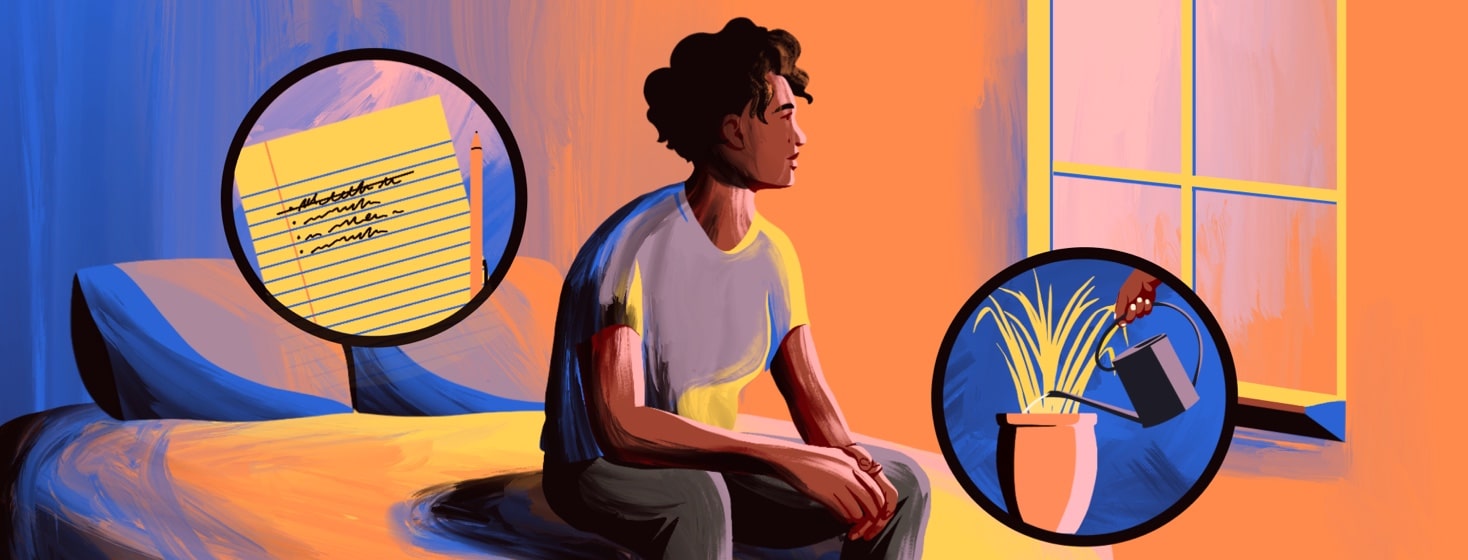Struggling With PPD? 5 Suggestions to Help Get Through the Day
As someone who has experienced postpartum depression (PPD) after living with regular daily depression, I've learned that there are parts of my mood I have control over actively shifting, and there are other parts which desperately need medication and a top notch trauma-informed therapist.
Honestly, the harder part for me is the parts in which I can shift or change in order to improve my depression symptoms - I think knowing that I have some control sometimes feels overwhelming or defeating before I even start.
Getting through the day with with postpartum depression
So today, I want to share with you 5 suggestions to shift your focus while living with/struggling with postpartum depression.
When I walk through this exercise on my own, I either grab a spare piece of paper to jot down my lists, or I open the notes app on my phone. Oftentimes, seeing things concretely in writing helps me to wrap my brain around them, especially when I'm feeling depressed or mentally foggy.
Ask yourself...
What feels easy?
Start with the real simple here. What feels easy to do? Is it maybe emptying the dishwasher? Throwing in a load of laundry? Letting your baby nap in your arms? Or is it taking a walk? Texting a friend? Putting on clean clothes?
There is no limitation to what you can include in this list, and my experience has been that once I make this list, I see things on there that either: a) I'm already doing/have done (and then I give myself a small pat on the back), and/or b) small things I can start with in order to change my headspace.
Where is grief showing up in your body?
That neck ache you feel when you get out of bed for the 30th time to feed your baby? The stomach ache that has you bouncing you baby while sitting on the toilet? Or the migraine that won't leave you alone? There are so many ways that grief can show up in the body, and there are small things we can do on our own to help reduce those things.
Maybe you look for relief in using heat or ice, taking over the counter medication, communicating with your doctor and the counselor or psychiatrist managing your PPD, taking warm showers or going for slow walks, stretching or resting? By caring for the part of your body most actively showing grief, you will physically start to feel better and very possibly feel an emotional release as well.
This or That
What fatigue symptom impacts you the most?
How can others support you?
Now, this list is critical. It can list big things or small things, but before we can ask for help, it's really beneficial to identify what areas we need/are willing to accept the help for. When I was struggling most with my PPD, feeding myself was a huge barrier. I didn't have the energy to think about making food or the funds to order endless delivery, so I often went without eating or just had endless snacks - neither of which was great for my mental health.
When I asked my parents for help, I asked each of them for a few home cooked meals and gift cards for food delivery services. Other things that felt supportive and helpful: rocking the baby while I took a long shower or a short nap, cleaning up around the house so I didn't have to feel the chaos of a mess, and being honest with me when they noticed my depression/anxiety/anger increase around certain moments or situations.
When can you find rest?
I know they say to sleep while the baby sleeps, but what if the baby will only sleep on you? Or what if the baby doesn't sleep in long stretches? Or what about if you can't sleep while the baby is sleeping because you're too wired or anxious or trying to accomplish other things around the house?
My motto is: sleep whenever you can. If your partner or a trusted family member/friend/doula could help out with the baby, take advantage of any sleep windows that open up. If you’re breastfeeding or pumping, it's most helpful to do that right before you lay down, maximizing the time you can be asleep before waking up to do it all over again.
What brings you simple pleasure?
Fresh flowers. Fresh air. Hot showers. A new pair of sweatpants. An old favorite TV show. New podcast episodes. The possibilities for this list are endless, and the more you write down, the faster you can reach for something to turn your mood a little bit when you’re extra down in the dumps.
Have you tried any of these mental shifts before? And remember, you're not alone – and you will get through this.
